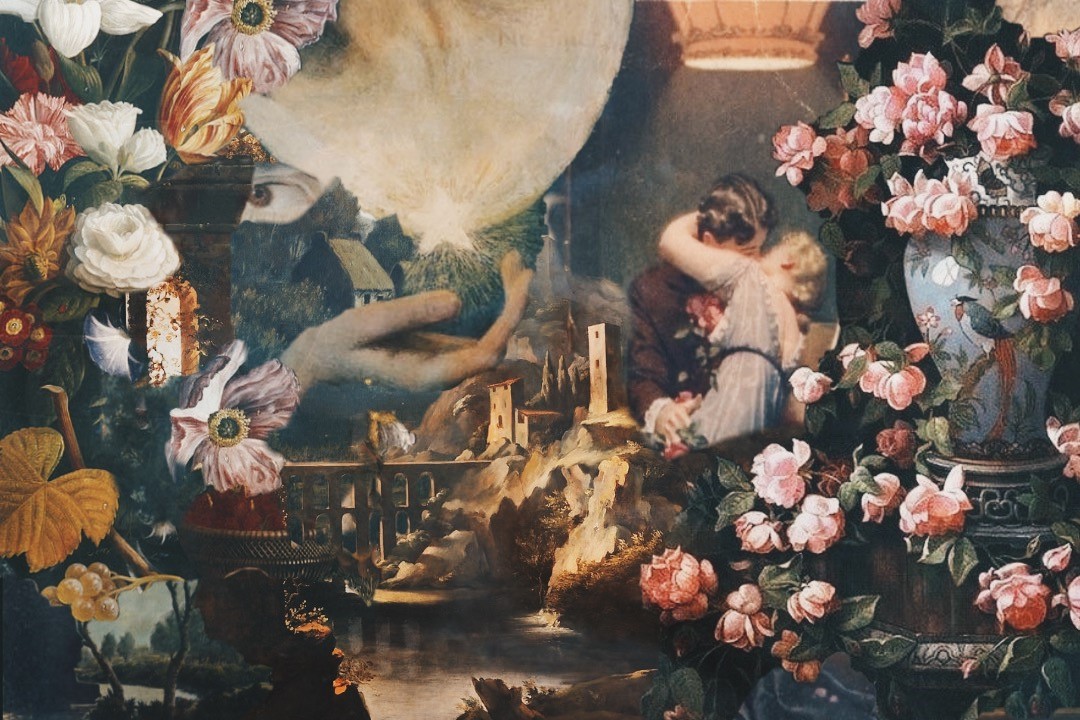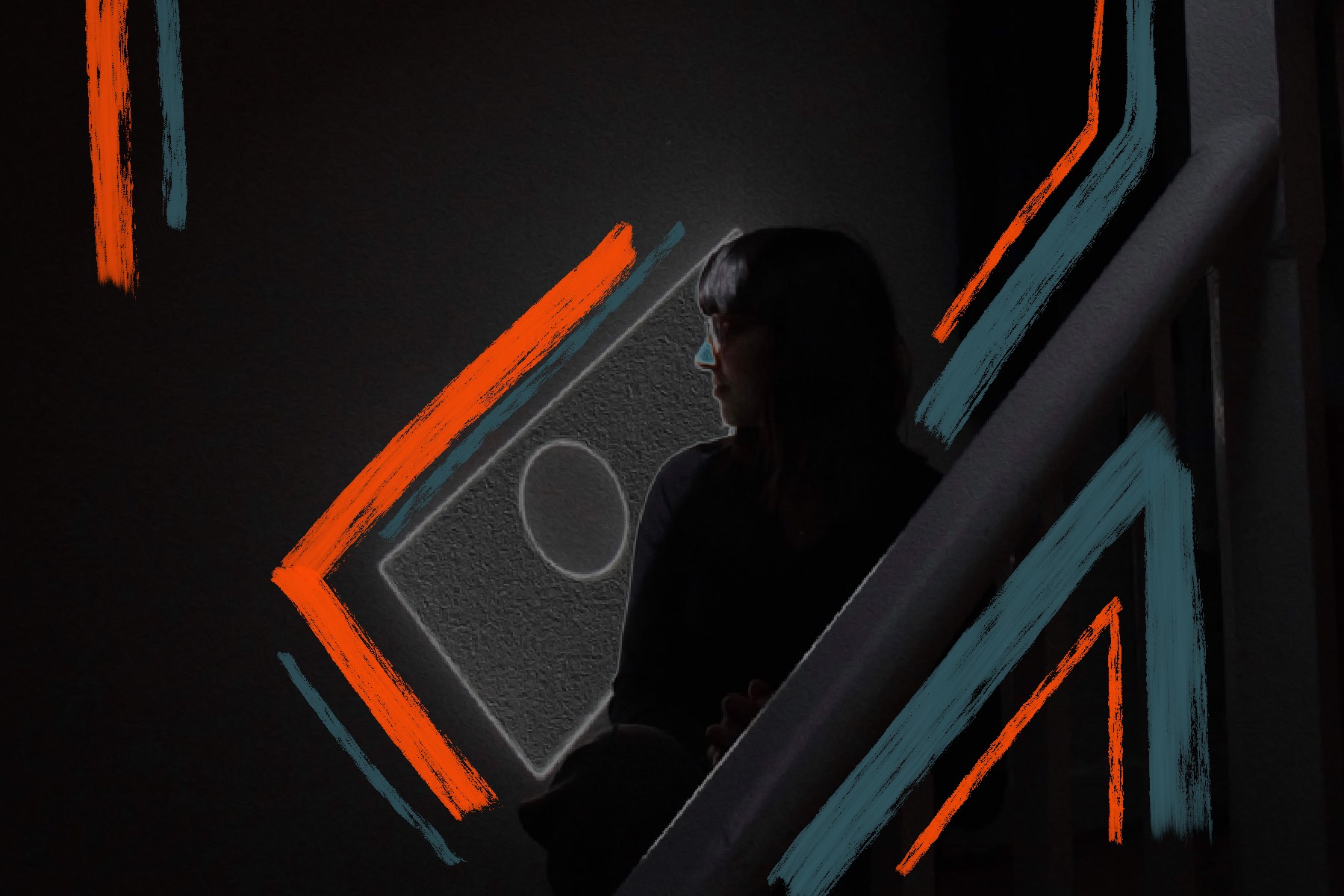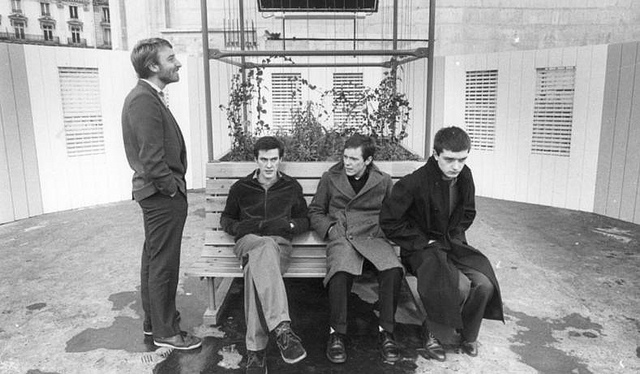
Somewhere in Düsseltal
The young woman pays Frau Manuela Grobbel the 200€ deposit. Well, she follows Frau Grobbel through the house with the money scrunched in her hands like a Monopoly player about to pass GO. Her name is Ebba. After paying the deposit, she receives a ring with two scratched silver keys. One is for the front door, and the other is for her downstairs bedroom. Frau Grobbel tells her which is which, and leaves the cool metal in her palms. At midday, Ebba leaves the house. She locks her bedroom door and the house door then walks a few steps down the driveway before turning around. Ebba returns to the house to retrieve her coat and scarf. It is a cold October day, and she makes sure to lock both doors behind her before heading out.
Later, when Ebba returns home, Frau Grobbel is waiting for her. It is Ebba’s choice what she wants to do, insists the Frau, and here Ebba is inclined to agree. However, Frau Grobbel continues, it would be better were the houseguest not to lock her bedroom door. Ebba understands that it may not be completely necessary to lock her bedroom door, that the front door will quite suffice. She knows that anyone who comes to the house with an axe in his hand (for it would be a man) would not fail to break down the front door, or any other door, in order to act on his deranged desires. But she wonders what, then, is the purpose of her key? Shouldn’t she give it one, by using it? But Ebba is a good girl and does as she is told. The next morning, Ebba does not lock her bedroom door, and when she returns home in the evening, she finds that the lights in her bedroom no longer work. Ebba stands in the doorframe and flicks the switch up and down, up, down, up… she is trying to trick light into being. But the room remains dark and the night peers in indifferently. Using the light on her phone Ebba, investigates. It is not long before the mystery is solved: the lamps are connected to the light switches and have all been switched off at the base. All Ebba needs to do is turn these on and she will be the Godhead commanding light into the world. It seems obvious that the Frau has intervened.
To reach the institute each morning Ebba has two options. Either she jumps aboard the 721 bus from Karl-Geusen-Straße and alights at Prinz-Georg-Allee before crossing the road to Eulerstraße, or she can take the 79 U-Bahn train to Heinrich-Heine-Allee and walk from there. Today Ebba takes the bus because it means she will not have to walk in the rain, even though it isn’t raining heavily. It is what her grandfather would call a monkey’s wedding. Usually, this thought would make Ebba smile, but today she thinks that the monkey should have gotten married at the weekend. The bus pulls up and Ebba asks to buy a ticket. Where to, the driver says. A few stops, somewhere in Düsseltal, says Ebba. She has not memorised the name because it is written down on her phone. The driver, suspiciously now: is it in Düsseldorf? and Ebba says: yes, of course, it has Düssel in the name, only she does not say that. Yes, it’s only a short journey, she says. The driver: a short journey is three stops and 1.30€, but you’re going to have to pay 2.80€, and she says: of course, I meant – but Ebba has the change ready and just hands it to the driver. After taking a seat, she feels as if she is being watched. Ebba shifts her rucksack so that it is resting on her lap. She lacks the confidence to remove her coat and scarf, though, and by now she is really too warm. She will be sweating by the time she arrives.
At the institute, Ebba enters an office. Here, she is handed a form to fill out for a discounted public transport ticket and told where to buy one. She asks: will I be able to buy this tomorrow? The woman at the desk meets her gaze. She says: you can buy one anytime from Monday to Friday, between the hours of 8am and 10am or from noon till 2pm, as is clearly stated here. Ebba is relieved. Unfortunately, Ebba will not be able to buy the ticket tomorrow, because tomorrow is the day of German reunification and therefore a public holiday. Disappointing, but Ebba has exciting news. Now it is time to mention the scholarship she has received. Tentatively, Ebba asks about her grant. She is told: you owe us 40€. It does not cover everything.
After class at the institute Ebba walks into the old city, pavement turning to cobblestone. She finds a diner and orders a pizza topped with garlic. The man serving her is impatient with her accent and repeats the word ‘garlic’ back at her. He does this many times, till he is shouting: GARLIC. Ebba is primly offended. She moves to eat, standing, at a small high table in the corner. Customers wanting a chair must pay a euro more.
Back at the house, Ebba is in the dark. Lately, she has been feeling inarticulate and believes that a spell has been cast on her. Upstairs, Lotte (a vicious terrier) is barking loudly towards the front of the house. Frau Grobbel, who sleeps upstairs, lets it go on – or perhaps she is dead. All at once, after an eternity of insistent yapping, the dog becomes quiet. Ebba thinks of the man who followed her through the old city and lingered when she did. Ebba is perceptive, even when someone has cast a spell on her. She caught on to what the man was doing at a pedestrian crossing. Rather than cross the road, Ebba paused for a moment, unsure whether to turn right onto Königsallee or to head across the river. Do you know the old city of Düsseldorf? If so, you will be familiar with the Königsallee. It is a beautiful tourist spot. Two long, wide boulevards on either side of the Rhine, with shops selling clothes Ebba cannot afford. The long river, its central passage-way, is glittering and opaque tonight. Ebba crosses while the light on the crossing is still green. She pauses on the bridge as if wanting to look out over the water for a moment, then takes a photo. She sees the man waiting behind her; it brings to mind a young child hovering by his mother while she speaks on the phone. The child is content to be patient for now. He anticipates her full attention soon.∎
Words by Holly Abrahamson. Art by Holly Anderson.







